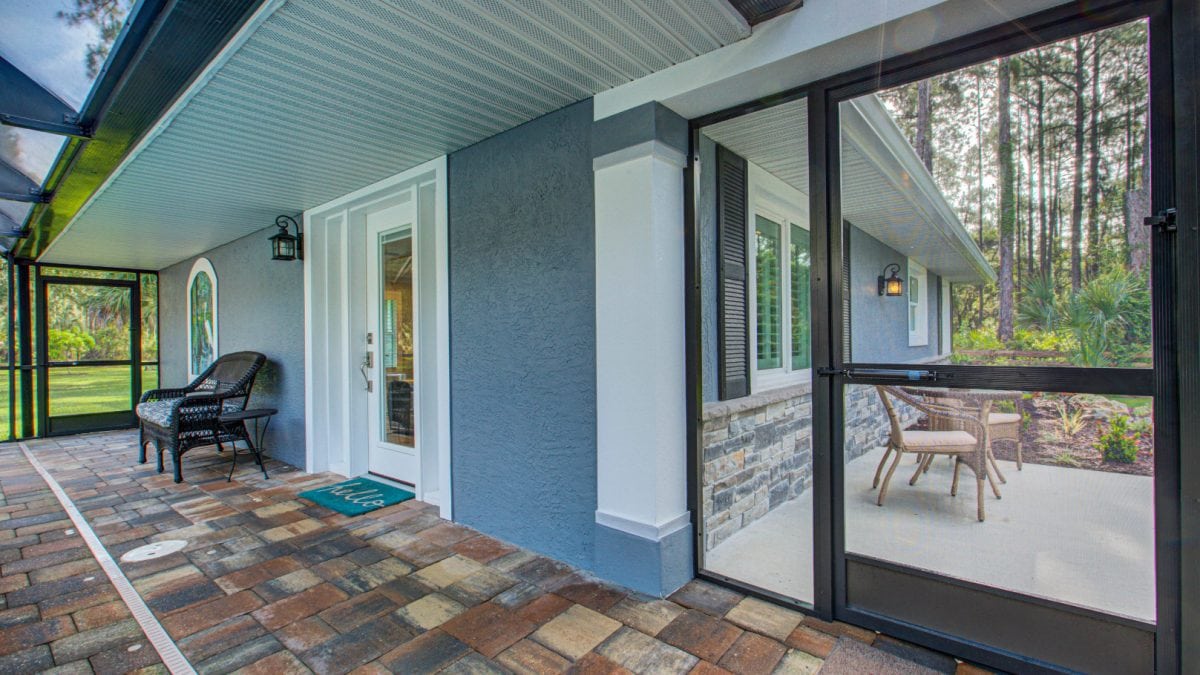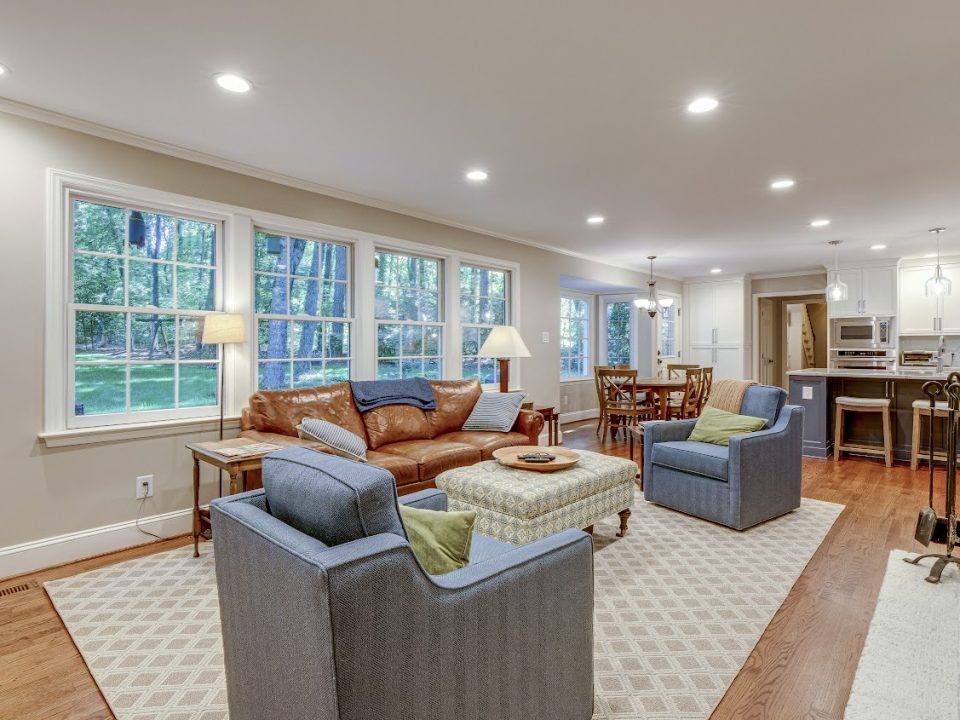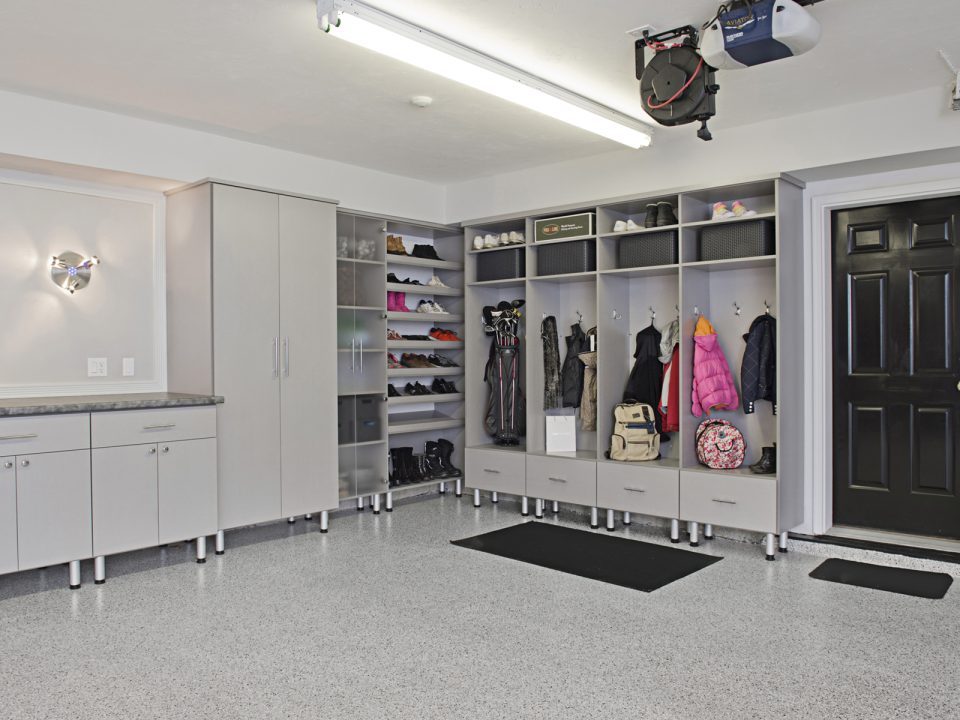
Revamp Your Backyard: Reese Homes’ Outdoor Kitchen Remodel
September 12, 2023How much do custom home builders charge? It’s a question that keeps many prospective homeowners awake at night.
The thought of finally building your dream house is exhilarating, but the potential costs? Not so much…
You’re not alone in this. Many folks out there are grappling with the same dilemma.
But here’s some food for thought: understanding how much custom home builders charge and what factors influence these charges can help you plan better and save on costs. So let’s dive right into it!
Table of Contents:
- Factors Affecting Custom Home Building Costs
- Design Considerations for Custom Home Building
- Labor Costs for Custom Home Building
- Materials Used in Custom Home Building
- Decoding Costs: How Much Do Custom Home Builders Charge?
- Benefits of Working With a Professional Builder
- FAQs in Relation to How Much Do Custom Home Builders Charge
- Conclusion
Factors Affecting Custom Home Building Costs
The cost of a custom home project is influenced by various elements. Let’s delve into these factors to help you plan your budget effectively and mitigate unexpected costs.
Location: More Than Just Scenery
Your dream home’s location plays an integral role in determining the total cost. High-demand areas or those with stringent zoning regulations often come with steeper land prices, escalating overall house costs.
Type and Quality of Materials: Balancing Cost and Durability
The type and quality of materials used are key determinants of how much custom home builders charge clients. For instance, marble countertops versus laminate ones will considerably impact expenditure due to their difference in price points.
- A choice between hardwood flooring over carpet can alter the total cost based on durability considerations.
- Differentiating among the lowest-priced materials while maintaining desired aesthetics becomes critical when working within a tight budget.
Labor Costs: The Price Tag Of Expertise
Labor charges introduce uncertainty when estimating construction costs as they fluctuate depending on market conditions. Subcontractor bids ‘cost-plus’ contract arrangements may offer some protection against this volatility; however, if not managed properly, it might lead to additional unforeseen expenditures.
Design Considerations for Custom Home Building
The design phase of a custom home project is pivotal, as it significantly influences the builder’s fee. This stage encompasses decisions regarding layout, style, and features that will shape your dream home.
Navigating Layout Complexity
A complex floor plan with numerous rooms or unconventional shapes necessitates more labor and materials, which inevitably increases costs. Conversely, simpler designs can help manage expenses better by requiring fewer walls, hence less material usage. Custom builders charge; let’s talk about striking a balance between achieving desired aesthetics while controlling house costs.
Picking an Architectural Style
Your choice of architectural style also plays into determining how much custom home builders charge clients. For instance, modern homes often incorporate large glass windows – these are expensive due to their size and installation requirements, whereas traditional styles may involve intricate details that increase the cost owing to labor price increases uncertainty.
Square Footage Implications
The total square footage of your large custom home directly impacts its overall cost; larger houses naturally require more resources than smaller ones, but economies of scale sometimes result in lower per-square-foot prices when building on a larger scale.
Incorporation Of Premium Features
If you’re envisioning high-end finishes like marble countertops or hardwood floors throughout the entire house, these choices will raise both material costs as well as subcontractor bids ‘cost-plus’ contract rates because they demand specialized skills for proper installation.
Eco-Friendly Design Choices And Their Impact On Cost
Incorporating eco-friendly elements into your design could lead to additional upfront charges but potentially save money over time through reduced energy bills via efficient insulation methods or solar panel installations.
Labor Costs for Custom Home Building
The labor costs of custom home building are a critical component in the overall expense, and it’s important to know how they’re calculated and what influences them. It’s essential to understand how these charges are computed and what factors may sway them.
Determining Labor Costs in Construction
The calculation of labor costs is based on several variables, such as project complexity, local wage rates, and construction duration by experienced builders. A more intricate design or larger square footage naturally demands more man-hours, which increases labor expenses.
Bear in mind that certain regions have higher average wages due to living conditions or demand for skilled workers. This regional disparity in wages also influences how much custom home builders charge clients.
‘Cost-Plus’ Contract vs Fixed Fee Contracts: Understanding Builder’s Fees
In terms of contracts used by builders, there are two primary types: ‘cost-plus’ contracts and fixed-fee contracts. The Balance offers detailed insights into both kinds.
While transparency is offered with the former type involving risk related to unexpected costs like increased prices due to uncertain economic situations, the latter protects against unforeseen additional costs but might be pricier initially since potential overruns are factored in when setting fees.
Budget Management For Labor Expenses During Custom Home Projects
If you’re planning your large dream house while working within tight budget constraints, understanding where each dollar goes can help manage expectations effectively. Remember, every decision from selecting the lowest priced materials without compromising quality standards impacts final house costs. Experienced builder understands this dynamic well; they ensure homeowners make informed decisions about their investment through clear breakdowns.
Working with professional companies like Reese Homes not only ensures completion within expected time frames but also helps maintain budgets throughout projects. In essence, proper comprehension regarding different aspects contributing towards the overall expense, including varied contractor fees, aids better financial management leading towards the successful realization of one’s dream home.
Understanding labor costs, contract types, and budget management is key to grasping how much custom home builders charge. Factors like project complexity, local wage rates, construction duration, and regional disparities in wages can influence these charges. Choosing between a ‘cost-plus’ or fixed-fee contract also impacts the final cost. Working with professional companies can help manage budgets effectively.
Materials Used in Custom Home Building
The selection of materials for your custom home projects significantly influences the total cost. The spectrum ranges from basic resources like wood and vinyl siding to high-end options such as marble or granite.
Variety of Materials and Their Cost Implications
Different types of building materials come with varying costs. For instance, opting for wooden siding may be more affordable than brick or stone, but consider that it requires regular maintenance, which can add to long-term house costs.
On the other hand, luxury finishes like marble countertops are pricier upfront but offer unparalleled elegance and durability that could increase your home’s value over time.
Making Material Choices Within Budget Constraints
Your dream home should reflect your personal taste while aligning with budget constraints. If you’re aiming for a large custom home without straining finances excessively, consider blending expensive elements with lower-priced alternatives – perhaps hardwood floors in main living areas complemented by less costly carpeting in bedrooms.
Bear in mind, though; some choices might lead to unexpected costs due to upkeep needs or labor price increases uncertainty associated with certain material installations. It is important not only to think about initial purchase prices but also to factor potential future expenses into the decision-making process when selecting construction products. This way, you can avoid the risk of cost-plus cons potentially arising from unforeseen changes in plans midway through the project completion timeline. Working with an experienced builder who provides guidance on these decisions based on their knowledge of different product performance characteristics along with subcontractor bids and ‘cost-plus’ contract considerations related specifically to the installation processes involved with each type of material chosen is invaluable.
Finding Balance Between Quality and Affordability
A common misconception among many clients equates low-cost materials with poor-quality ones when it comes to construction supplies; however, this isn’t always the case. Remember, the cheapest doesn’t necessarily mean the best value either. Sometimes, investing more initially saves money in the long term by reducing the need for repairs or replacements later. An experienced builder can guide you through material selections, understanding their various attributes as well as how they affect the overall pricing.
Choosing materials for your custom home is a balancing act between taste, budget, and long-term costs. It’s not just about upfront expenses; consider maintenance needs and potential future prices too. An experienced builder can help navigate these decisions, debunking the myth that cheap always equals poor quality.
Decoding Costs: How Much Do Custom Home Builders Charge?
When building your dream home, one of the most important factors to consider is the cost. Custom home builders offer a range of services and expertise, but how much do they charge? Take a more in-depth view of the elements that can impact the cost and the advantages of getting an expert for your venture.
Factors Affecting Custom Home Building Costs
Several factors can influence the cost of building a custom home. These include:
- Size and complexity of the home
- Location and site conditions
- Materials and finishes
- Architectural design and customization
- Permits and regulatory requirements
It’s essential to collaborate with your constructor to comprehend how these elements will sway the cost of your customized residence. It’s important to work closely with your builder to understand how these factors will impact your budget.
Custom Home Builder Pricing Models
Custom home builders typically use one of two pricing models:
- Fixed Price: With this model, the builder provides a fixed price for the entire project. This can provide peace of mind and make budgeting easier. It is essential to be aware of what’s included in the rate and any potential extra costs.
- Cost-Plus: In a cost-plus model, the builder charges for the actual cost of construction plus a percentage fee. This can be more flexible, but it’s important to have a detailed breakdown of costs and regular communication with the builder to avoid surprises.
It’s important to discuss pricing models with your builder and choose the one that best suits your needs and budget.
The Benefits of Hiring a Custom Home Builder
While building a custom home can be a significant investment, there are several benefits to hiring a professional builder:
- Expertise and Experience: Custom home builders have the knowledge and experience to navigate the complexities of the construction process and ensure high-quality results.
Building a custom home isn’t just about the price tag. It’s also about understanding what influences costs, from size and location to materials and design. The builder’s pricing model – fixed or cost-plus – plays a big role too. Remember, hiring a professional is an investment in expertise.
Benefits of Working With a Professional Builder
The exhilaration of designing your ideal abode can be intimidating. Choosing an experienced builder like Reese Homes provides several advantages worth considering.
Quality Assurance in Custom Home Building
A seasoned custom home builder ensures high-quality construction by leveraging their established relationships with skilled subcontractors and suppliers who deliver superior workmanship and materials. This extends from the foundation right through to the finish, providing peace of mind for homeowners throughout the process.
Budget Management in Custom Home Projects
An expert in building large custom homes understands how to manage costs effectively without compromising quality or design aesthetics. They know where savings can be made without sacrificing function or style – crucial when working within a tight budget.
Troubleshooting Expertise During Construction
In any large-scale project, such as constructing a house, costs may escalate due to unexpected issues arising during construction. An experienced builder has likely encountered similar problems and knows how to resolve them quickly while minimizing additional costs.
FAQs in Relation to How Much Do Custom Home Builders Charge
Are custom builds expensive?
Yes, custom builds can be more costly due to the unique design elements and high-quality materials often used. However, prices vary widely based on factors like location and builder.
How do you cut costs when building a custom home?
To trim expenses, consider simplifying your design, choosing cost-effective materials, or doing some work yourself. But remember not to compromise on quality for essential aspects.
What is the profit margin on a custom-built home?
The profit margin varies but typically falls between 15-20%. It depends largely on construction costs versus the selling price and market conditions at the time of sale.
How much does it cost to build a house in Wisconsin?
In Wisconsin, the average cost per square foot for new residential construction ranges from $100-$200 depending upon various factors, including location and material choices.
Conclusion
Custom home building is a complex process with costs that can vary greatly.
Factors such as magnitude, blueprint intricacy, and material selections can have a major influence on the final cost.
Labor costs are another major component when budgeting for your dream home.
The location of your new abode can also impact the overall cost due to varying local labor rates and material prices.
To navigate these financial waters, numerous financing options exist for prospective homeowners embarking on this exciting journey.
Working with a professional builder like Reese Homes not only helps streamline this process but ensures quality workmanship and customer service every step of the way.

Reese Homes, the award-winning home builder, is passionately devoted to enriching the lives of our clients through the highest quality construction and architectural design. We work hand-in-hand with you and our skilled team to create a partnership that guarantees your home truly expresses your unique personal style.




